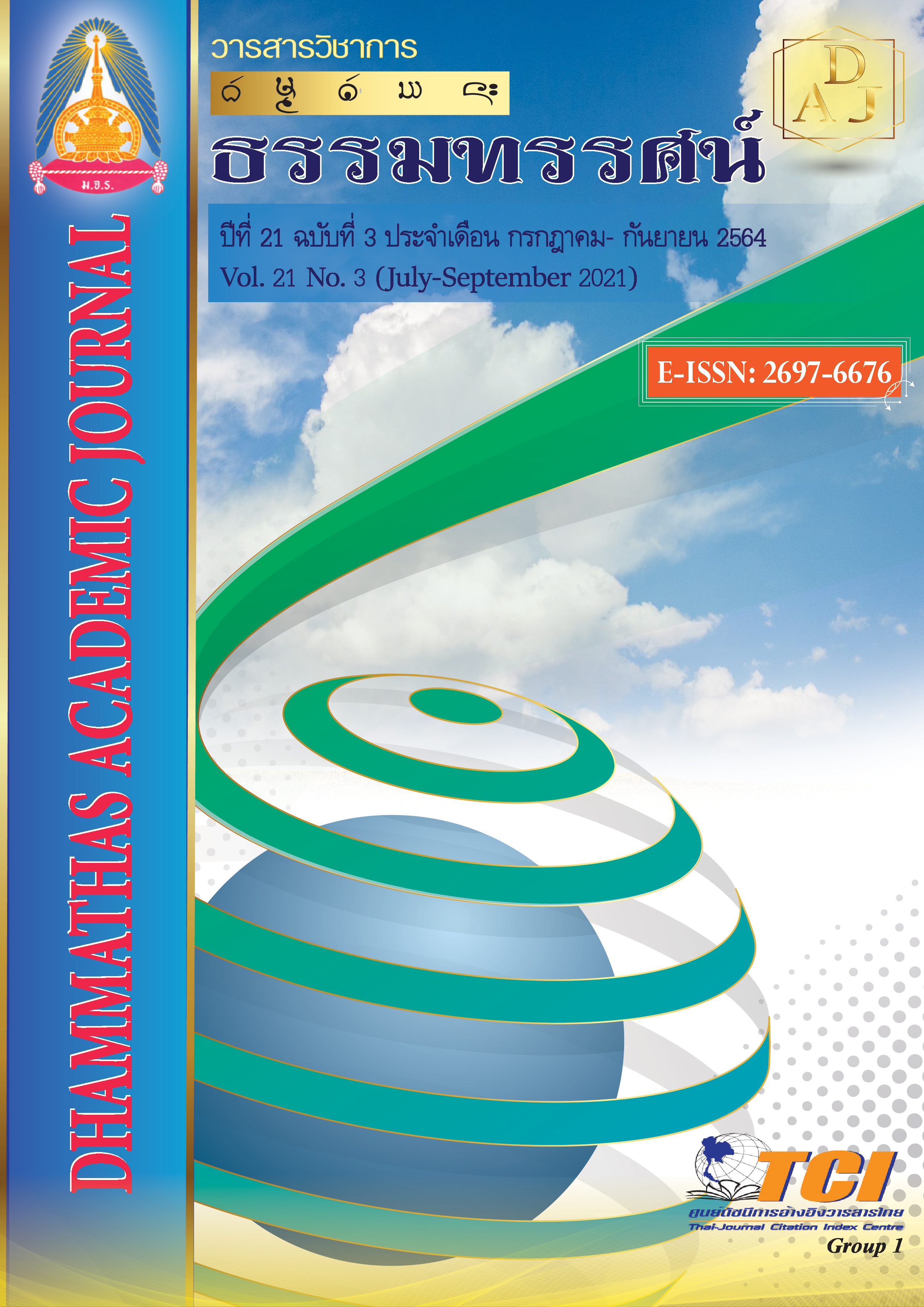Buddhist Ethics Enhancement According to the Threefold Training of the Novices of Wat Chedi Luang
Main Article Content
Abstract
The Purpose of this research are: 1) To study the Buddhist ethics enhancement according to the three-Sikha principles of the novices of Chedi Luang Worawihan Temple, Muang District, Chiang Mai Province 2) To Build a Buddhist ethics according to the three-disciples of the novice. To Suggestions for research studies And a guide to life The way to live life does not go astray in any direction. It is a qualitative research. In which areas of research are Wat Chedi Luang The research tools for the compilation were individual in-depth interviews. In-depth interviews for each group Environment observation model Non-participatory observational model And the life history study From key informants.
The research result finds that:
- Study of Buddhist ethics enhancement according to the Tri-Sikha principle of the novice of Chedi Luang Temple. The practice of precepts is a great control over the behavior of a novice. Because it is the residence of Banchit Resulting in good and good tidiness for both oneself Buddhism helps to maintain the institute to create good faith, which can be summarized in 3 aspects: good routine, good responsibility, behavior
- Analyze ways to strengthen the Buddhist ethics according to the three-disciples of the novice. And a way of doing good It normally calms the mind and body. Have more neat behavior Calms the mind Helps refine. Know right and wrong, know more about how to live life Is the right thing to do Understand more about the Buddhist principles Know more about how to use discretion Helping the mind more calm. Make smart people become smart Know how to adapt the principles to apply them in life.
- Suggestions for research studies And a guide to life The way to live life does not go astray in any direction, especially the direction that will lead to an unsuccessful life in a nutshell. Being with Buddhism, therefore, starting to maintain a routine is the most fundamental responsibility, self-care, care for the place, and caring for others. Should allow adults to listen to the opinions of a novice. Do not take your self.
Article Details
References
กระทรวงศึกษาธิการ. (2543). คุณธรรมและจิตสำนึกของข้าราชการครู. (พิมพ์ครั้งที่ 4). กรุงเทพฯ: การศาสนา.
บุญมี แท่นแก้ว. (2541). จริยธรรมกับชีวิต. กรุงเทพฯ: โอเดียนสโตร์.
พระพรหมคุณาภรณ์ (ป.อ. ปยุตฺโต). (2555). พจนานุกรมพุทธศาสตร์ ฉบับประมวลธรรม. (พิมพ์ครั้งที่ 23). กรุงเทพฯ: ผลิธัมม์.
วศิน อินทสระ. (2544). จริยศาสตร์. (พิมพ์ครั้งที่ 4). กรุงเทพฯ: บรรณกิจ.
สำนักงานคณะกรรมการพัฒนาการเศรษฐกิจและสังคมแห่งชาติ. (2559). แผนพัฒนาเศรษฐกิจและสังคมแห่งชาติฉบับที่ 12 พ.ศ. 2560-2564. กรุงเทพฯ: สํานักนายกรัฐมนตรี.

